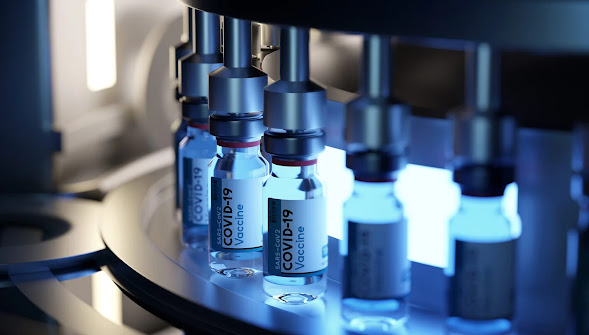Vaccine manufacturing technologies that are smart seem to be here to stay.
In the fight against COVID-19, so-called "smart" vaccine production technologies, i.e., systems that capture and transmit process data, have proved critical. Industry was able to expedite process development and begin producing billions of doses of vaccine less than a year after SARS-CoV-2, the virus that causes COVID-19, was sequenced, thanks to the availability of better quality data.
To put this in perspective, according to a research by the International Federation of Pharmaceutical Manufacturers and Associations (IFPMA), vaccine development took an average of 10 through 15 years from discovery to clinical trials, process development, and production before 2019.
The rapidity with which the vaccine business embraced smart production technology, according to Vishnu Kumar Ph.D. of Pennsylvania State University, was the most astounding aspect of the industry's reaction to the epidemic.
"With COVID-19 rapidly spreading over the world, there was an immediate urgency to preserve people's lives and livelihoods." "Vaccines were identified early on by healthcare specialists as the greatest route out of the issue," he continues. "As a consequence of the pandemic, biopharmaceutical companies rushed to implement innovative biotechnology platform-based vaccine production processes, such as mRNA and viral vector platform-based vaccines."
And, according to Kumar, who analyzed the effect of pandemic vaccine production in a recent research study, technologies adopted as a consequence of COVID-19, especially those utilized to create m-RNA vaccines, are here to stay.
Vaccines based on messenger RNA platforms emerged as winners.
"Smart vaccine production technologies have helped Messenger RNA platform-based vaccines emerge as a winner." Kumar says, "As business produces vaccines for a broad variety of infectious illnesses, utilization of these systems will continue to rise." "These vaccinations can be made quicker, with a shorter turnaround time, and are adaptable to individual viruses, as well as presumably being less expensive." According to a recent study of 95 vaccine manufacturers conducted by the Coalition for Epidemic Preparedness Innovations (CEPI), the majority of them expect to invest in mRNA and/or DNA vaccine manufacturing capacity over the next five years. According to Kumar, the transition to smart manufacturing technology would be delayed in the broader biopharmaceutical business, especially for firms not participating in the battle against COVID-19.
"Smart manufacturing," he says GEN, "would involve the deployment of smart devices to gather, store, and transfer data and services to promote linkages between equipment throughout each step of the vaccine research and production process."
"However, there are a few obstacles that most businesses face: financial limits, technological infrastructure limitations, and uncertainty over data ownership, privacy, and security." These considerations must be taken into account."


Comments
Post a Comment